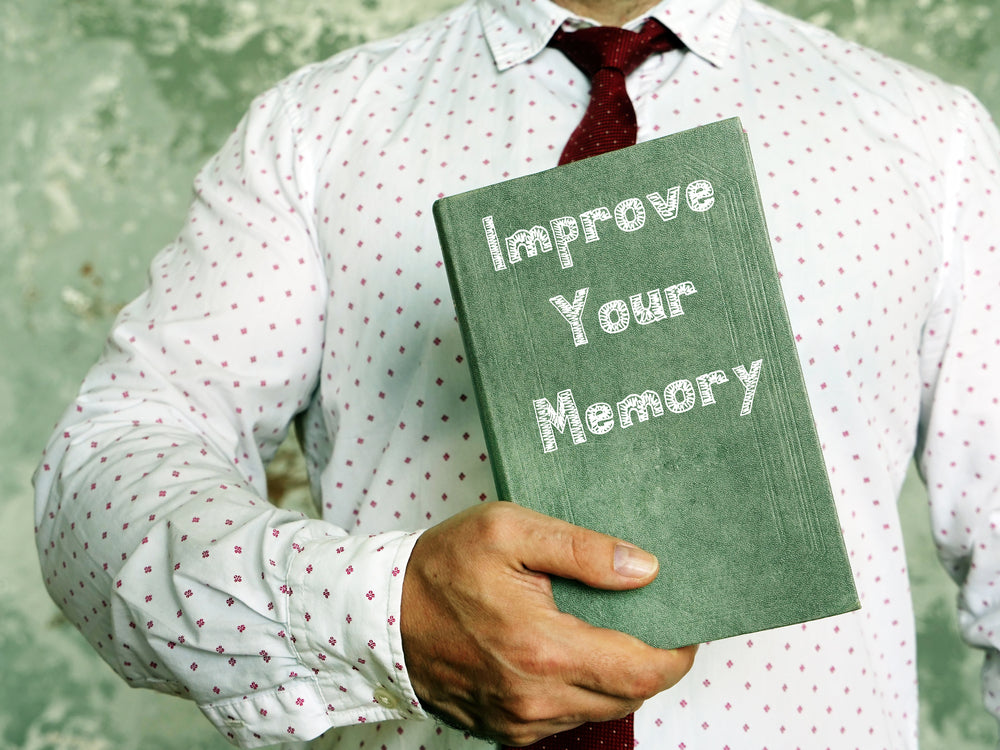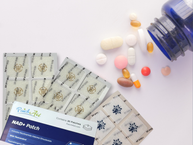Do you forget where you put your keys? Do you wonder whether you turned off the lights and the stove when you left the house? Do you sometimes forget which day you have an appointment or when you’re supposed to phone a friend?
Lots of people forget things sometimes, so you are certainly not alone if you do. It can even be normal to forget things with age. However, there is a lot you can do to slow or reverse memory loss now and while aging. Simple lifestyle choices, such as healthy actions and making sure you supply your brain with essential nutrients, can support memory.* Just be sure to talk to your healthcare provider before taking any nutritional supplements. Here are eight tips for improving memory.
Challenge Your Brain
Keep your brain active to keep it functioning well. When you ask your brain to do hard things, your brain starts to rise to the occasion. Some activities to exercise your brain can include the following
- Playing games that are designed to challenge your brain
- Learning a new language
- Reading books
- Practicing an instrument or improving your art skills
- Learning a new hobby, such as sewing, cooking, woodworking, or collecting
- Doing crossword puzzles or other word games
- Playing traditional or online memory games
Anything you can do to make yourself think can boost your memory.
Try New Things
Whenever you do something new, you are asking your brain to have new thoughts. This is another way of challenging your brain and helping to improve memory. Whether you take a surfing class, plan a trip to somewhere you’ve never been, or just take a new route home from work, you are keeping your brain active.
Stay Physically Active
Here is yet another reason to start a physical activity regimen, or to keep up with one if you already exercise. Being physically active and fit can support mental health! As long as your healthcare provider agrees, it’s good to get at least 150 minutes per week of moderate to vigorous-intensity physical activity, and more is better.
You can kill two birds with one stone with activities such as these.
- Brisk or uphill walking
- Jogging or running
- Bicycling or spinning
- Playing tennis, soccer, or basketball
- Doing circuit training
- Taking aerobics, kickboxing, dance, or other group fitness classes
- Swimming or doing water aerobics
It’s not just your imagination when you feel clearer-headed after working out!
The Vitamin B12 Energy Plus Patch by PatchAid includes B vitamins, which are necessary for normal metabolism and energy production from the foods you eat.* It also has brain nutrients such as choline and inositol.
Get Enough Sleep
You may have experienced first-hand the effects of missing sleep on your memory. After a night or more of sleep deprivation, it can be hard to focus on anything, process what you experience, or remember much.
Adequate sleep is essential for letting your brain process and store what happened the previous day. Decluttering your brain can also set the stage for remembering better when things come up the next day.
The Sleep Aid Patch by PatchAid has melatonin, which is a natural sleep hormone that has been used to help people maintain normal sleep patterns, especially in jet lag situations.* It also has valerian root and other non-habit-forming ingredients to support normal relaxation.* There’s also a Sleep Aid Patch for Kids, without melatonin. We all know that kids need their sleep to be able to perform their best at school!
Be Social
Hanging out with others is like a mental exercise without effort! When you talk and laugh with others, you are being spontaneous and must react to others’ ideas and actions. That helps your brain get used to thinking fast. Plus, listening to others’ stories can be good practice for your memory as you make sure you are being a good listener and are able to remember enough to ask thoughtful questions.
Volunteer
Volunteering can combine lots of strategies for boosting memory. It may involve socializing with other volunteers or people whom you are serving. It can force you to learn a new skill. You may need to be physically active when you volunteer if you are doing something like distributing food to needy people or walking pets in shelters.
And, volunteering can improve mood, which can allow you to focus better. The Relax and Unwind Patch is designed to help normalize mood and allow for normal feelings of wellbeing. When your brain is in a relaxed state, it’s easier to remember.
Lose Weight
Being overweight is a risk factor for cognitive deficits, such as memory loss. While it’s not easy to lose weight, you can try to do so by making small changes, such as these.
- Drinking more water
- Eating more vegetables
- Having smaller portions of sugary foods, such as jam, desserts, and sodas
- Choosing leaner proteins, such as fish, skinless chicken, egg whites, reduced-fat dairy products, and lean ground turkey
When you lose weight, you may find that you feel sharper mentally.
Eat for Brain Health
Your brain needs certain nutrients to function optimally. Foods high in antioxidants include fruits, vegetables, and beans. Fish can have omega-3 fats, which are essential for optimal brain health, and you can also opt for the Omega-3 Plus Patch if you’re not sure that you’re getting enough omega-3’s from your diet. Limiting fast food, fried foods, and fatty meats can also help support clear thinking and memory.
Improving memory is possible with some daily practice and healthy habits. Eating well, exercising regularly, and taking good care of yourself can make a big difference. PatchAid Vitamin Patches can contain essential nutrients for brain health,* and they can also have herbal and other ingredients to support normal mood and cognition.* Ask your healthcare provider which of these easy-to-use, convenient patches may be good for you to take.
*The Food and Drug Administration has not evaluated these statements. PatchAid products are not intended to diagnose, treat, cure or prevent any disease. Anyone with a medical condition should seek the advice of a licensed medical practitioner. Individual results may vary.







